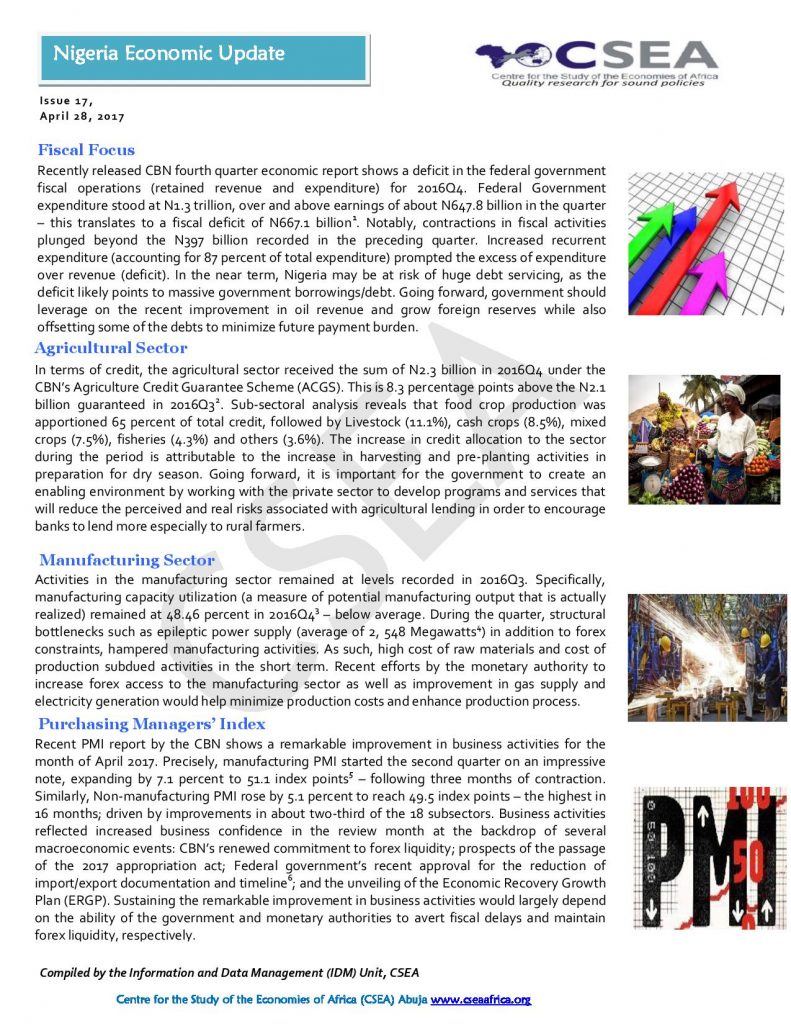Macroeconomic Report & Economic Updates

May 10, 2017
Nigeria Economic Update (Issue 17)
Activities
in the manufacturing sector remained at levels recorded in 2016Q3.
Specifically, manufacturing capacity utilization (a measure of potential
manufacturing output that is actually realized) remained at 48.46 percent in
2016Q4 below average. During the quarter, structural bottlenecks
such as epileptic power supply (average of 2, 548 Megawatts) in
addition to forex constraints, hampered manufacturing activities. As such, high
cost of raw materials and cost of production subdued activities in the short
term. Recent efforts by the monetary authority to increase forex access to the
manufacturing sector as well as improvement in gas supply and electricity
generation would help minimize production costs and enhance production process.
